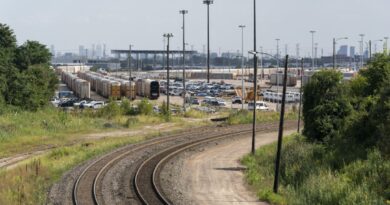Brazil’s Economic Struggles Intensify
Brazilians are facing financial troubles due to a deflated local currency, inflation, and an exodus of investors.
Analysis
Brazil’s economy struggled last year with rising inflation, a deflated currency, and decreased investor confidence, a situation expected to worsen in 2025.
This led to a significant drop in Brazil’s financial assets at the end of 2024, with the U.S. dollar rising by 7.2 percent against the real in just over a month.
During the same period, Brazil’s main stock index, Ibovespa, plummeted by 7.4 percent.
Finance experts share concerns about Brazil’s increasing debt trajectory, as noted by the French banking group Crédit Agricole in a January report.
A stronger U.S. dollar and ongoing inflation are adding to the financial strain faced by Brazilian residents and businesses, diminishing the real’s value.
Noting the impact on purchasing power, local economist Max Cohen highlighted the adverse effects on all Brazilians due to the reduced value of the real.
He also pointed out that under President Lula’s administration since 2023, challenges like inflation, poverty, and currency fluctuations have worsened, leading to increased poverty.

A supporter of Brazilian presidential hopeful Luiz Inacio Lula da Silva hangs a flag with a photo of the candidate on her street stall during the presidential run-off election, in Rio de Janeiro, Brazil, on Oct. 30, 2022. Mauro Pimentel/AFP via Getty Images
“The average Brazilian is facing a rising cost of living due to inflation and currency devaluation, making essential goods more expensive,” said Brazilian tax attorney Paulo Ricardo Alecrim.
Alecrim highlighted concerns about unemployment and a weak currency contributing to economic insecurity, making financial planning and saving more challenging.
“Imported goods have become more expensive due to the devaluation of the real, while inflation has eroded purchasing power,” added Alecrim.
He also mentioned that many Brazilians struggle to cover basic expenses like food and housing, leading to increased delinquency rates and declining consumption.
According to Alecrim, the high tax burden in Brazil complicates the situation further, with recent tax reform legislation potentially exacerbating economic challenges.
In addition to tax issues, Cohen highlighted inflation as a major concern for Brazilians, especially given the impact on credit availability.
Despite the challenges faced by Brazil’s financial markets, Jason DeVito, a portfolio manager, remains optimistic that legislative measures will help manage debt growth.

Brazilian President Luiz Inacio Lula da Silva and First Lady Rosangela Lula da Silva arrive at the Planalto Palace in Brasilia on Jan. 14, 2025. Evaristo Sa/AFP via Getty Images
“Strict fiscal discipline is essential to reduce the public deficit, attract investments, and provide legal security for entrepreneurs,” Alecrim stated.
He also emphasized the importance of reducing state intervention and promoting private enterprise to regain investor confidence.
“Empowering private enterprise is crucial for economic and social development,” Alecrim concluded.
Cohen agreed, suggesting that reducing government costs, eliminating mistrust to attract foreign investment, and promoting transparency in communication are necessary steps to stabilize the economy.
He also predicted challenges in economic relations between Lula’s government and the United States, especially in light of contrasting ideologies.

Larry Ellison, Executive Charmain Oracle listens to U.S. President Donald Trump speak at the White House on Jan. 21, 2025, in Washington. Jim Watson/AFP via Getty Images
“Brazil may struggle in foreign policy and international trade with the U.S. under Lula’s government due to opposing ideologies,” Cohen opined.
“The focus now is on commitments from these countries regarding currency initiatives to avoid trade repercussions,” Trump stated.





